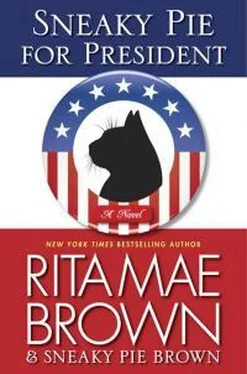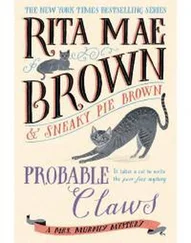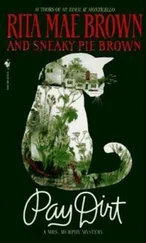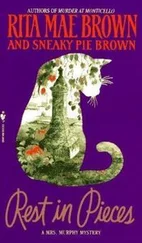“Same for humans, I guess,” said the corgi. “Some like one kind of human, some another. Now, back to taxes for a minute.”
“Yes.” The cat perked up her ears.
“I can’t help thinking if the humans refuse to pay taxes, a whole mess of them, and instead they spent their own money fueling the economy, it will improve.” The dog smiled broadly.
“That’s a fact. But to be legally secure, they’d have to put their tax liability in an account to prove they were doing just as you said. I think it’s called escrow.”
“That’s crazy. Spend the money.”
“Or they should invest,” said Sneaky. She was prudent about resources, mostly from sitting with the C.O. at the desk when she tried to figure out expenses, seed and fertilizer needs, food bills, all that. “Investing means you might make money,” the cat explained.
“I thought that’s why humans worked,” Tucker said.
“Yeah, but if a human invests, they make money off the work of other humans. Plus, their investments build companies and pay for research. It’s to our own detriment that animals don’t invest. It’s a big weakness.”
“It is not,” said the corgi. “And we do invest, sort of. I bury my bones for future use. You’re talking about pie in the sky. If you can’t carry it in your jaws, it’s useless.” The dog felt one hundred percent sure on this topic. “I can dig up my bone whenever I want. What good is a piece of paper?”
“Tucker, what works for us doesn’t work for them,” said Sneaky. “They worry about things that happened in the past, miseries now, what can go wrong in the future. I think investing is a way to dampen all that worry.”
“Like I said, pie in the sky,” said the corgi. “Who knows what tomorrow will bring, or even if there will be a tomorrow? Live for today. Doesn’t do you any good to tell them. That’s the thing, you have good ideas, but a lot of animals have good ideas—humans don’t hear them.”
“I know.” The tiger wrapped her tail around her as she sat. “I think I can reach our kind, especially most domesticated animals, some wild ones, I hope.”
“Well, I’m all ears.” The dog’s pink tongue stuck out as she panted a little.
“I’ve been toting up sums,” said Sneaky. “Pewter’s helped a bunch. One-hundred-twenty-two-point-three billion dollars from hunting, fishing licenses, and ancillary costs, only partial costs, but that’s the best we could do. Seventy-four billion dollars each year from cattle alone, and another three-point-five billion dollars from dairy cattle, milk, cheese, that stuff. Then you add in sheep and lambs, that’s five-point-six billion dollars a year. Hogs are sixty-eight billion dollars. Chicken, turkey, poultry are maybe one-point-six billion dollars, and horses alone are one hundred two billion dollars. The whole pet industry is about fifty-point-eighty-four billion dollars. That’s four hundred billion dollars, give or take. None of this reflects the jobs created for humans by animals. None of this reflects what animals do to help humans—you know, like bats. So I would hazard a guess that our contribution to the United States economy each year has to be about one trillion dollars. I don’t think we will ever truly know, but we produce revenue, jobs, and, really, health.”
Tucker was astonished. “If you can ever find a way to reach humans, that number should wake them up.”
“If it doesn’t, can you imagine animals going on strike? Cats refusing to catch mice? Cattle running away from those trying to round them up for days? I mean, we could create far more chaos than folks withholding taxes. Why is it that people only learn through disruption and pain?”
Tucker defended their human. “Oh, our C.O. learns other ways.”
“She does, I suppose, but on big political issues I don’t think she’s one bit different. Something hurts them, then they finally pay attention. Can you imagine what an animal strike would do, combined with a true tax revolt?”
“The government would crash and burn,” Tucker soberly replied. “We don’t want that.”
“Quite the opposite. But sometimes one has to be destructive in order to be constructive,” the tiger cat sagely noted.
“Sneaky, that’s all getting over my head. You can’t talk about stuff like that on the campaign trail. You’ll be branded a revolutionary and be ignored. Stick to the money.”
“I will. Of course, if Rush Limbaugh called me a slut, that would get more attention.” She giggled.
“You’re spayed.” Tucker giggled back. “Your virtue is above reproach.”
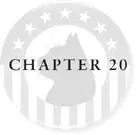
Welcome to America
July 4 was blessed with sunshine and lovely cooling breezes, promising to be one of the best days ever for welcoming new citizens to the United States.
Chairs faced a dais. Also seated on the dais next to the judge who would swear in the new citizens was Leslie Bowman, the director of Monticello, the celebrity who would give a brief (it was hoped) speech to commemorate the special day.
Up in a tree with the birds, Sneaky Pie and Pewter watched as the people about to become citizens sat in the front few rows. They had been born in other nations. They were every color a human animal could be, different faiths, different ages, males and females, and who knows if there was anyone in between those two somewhat false poles of gender? Nobody cared. What mattered is that to be eligible for U.S. citizenship, these people had undergone a course of study over time. They then took a test to demonstrate they understood America’s founding principles. Each person had to swear allegiance to their adopted country, to bear arms against the country of their birth, should the United States find itself at war with that nation. Such a promise, such study, required much dedication and soul-searching. It was inspirational, thought Sneaky.
The about-to-be citizens often knew the Constitution better than those who had the supreme good fortune to be born U.S. citizens.
A national treasure such as Monticello can operate only with the help of many people, people who give their money and their time. Legions of humans visited Mr. Jefferson’s home in 2011, and most left with a sense of what life was like in the late eighteenth century and early nineteenth century. They took away some sense of Mr. Jefferson himself, his family, the slaves, so many of whom had highly developed skills, often promoted by the master. Slavery, sanctioned by the Old Testament, by thousands of years of human endeavor, and currently alive in parts of the world today, nonetheless left a troubling legacy visible at Monticello. Recognizing this and various thorny historical matters, the current director and Dan Jordan, the immediate past director, were to be congratulated. How easy to deny, dodge, gloss over this fundament to success?
The two cats and dogs discussed the past as people filed in, taking their seats, breaking out little paper fans. Most everyone who was well acquainted with a Virginia summer wore a hat.
The C.O.’s old truck was parked down at the Bowman and Neuhoff house under a shade tree, windows open. The animals had long since slipped away, of course. That Leslie Bowman and Court Neuhoff didn’t care that a beat-up truck was parked among the gleaming BMWs, Mercedes, Jaguars, was a statement in itself. Mr. Jefferson would have approved their egalitarianism.
The cats in the tree could more easily hide than the two dogs. Tucker and Tally, staying quite still, had crawled under nearby thick bushes to observe the proceedings.
“He had a wolf by the ears.” Pewter pronounced judgment on Mr. Jefferson’s slave owning.
Читать дальше
